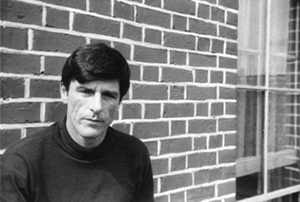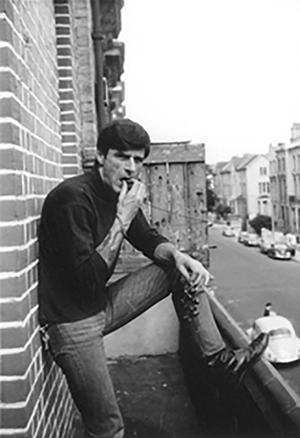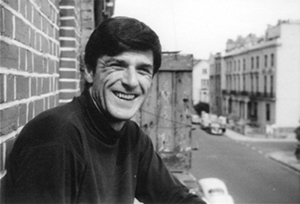About Thom Gunn
Biography
Thom Gunn (1929-2004), British-born poet who resided in San Francisco for much of his life, published over thirty books of poetry and two collections of essays; he also edited four collections of poetry. Gunn's work evinces his interests in poetic form and in unconventional poetic subjects, such as Hell's Angels, LSD, and homosexuality.
Gunn received a B. A. in 1953 from Trinity College, Cambridge University. His work at Cambridge culminated in his first book of poetry, Fighting Terms (1954). In 1954, Gunn moved to the United States after winning a poetry fellowship at Stanford University and spent a productive year writing most of the poetry for his second book, The Sense of Movement (1957). In 1958, Gunn became an instructor at the University of California at Berkeley, where he taught off and on until 1999.
During the late 1950s, he began to move away from the traditional, structured metric poetry that had brought him initial success and to experiment with syllabics and free verse. The second half of his My Sad Captains (1961) includes experiments with syllabic verse. This work was followed by Positives (1966), a book of poems and photographs on which he collaborated with his photographer brother Ander. A year later, the long poem "Misanthropos" appeared in his next collection of poems, Touch (1967).
Gunn's experience with LSD led to his next collection of poetry, Moly (1971). In 1976, his sixth collection, Jack Straw's Castle, was the first to explore openly his sexual orientation. The Passages of Joy (1982), a seventh collection of original poetry, included historical figures and gay characters and celebrated friendship. The essay collection, The Occasions of Poetry: Essays in Criticism and Autobiography also appeared in 1982. A sequence of elegies for friends lost in the AIDS epidemic of the late 1980s, The Man with Night Sweats, appeared in 1992. His last book, Boss Cupid, appeared in 2000, about the time he retired from part-time teaching at the University of California at Berkeley. Gunn's professional success did not go unrecognized: he received a Guggenheim Fellowship (1971), W. H. Smith Award (1979), and a MacArthur Fellowship (1994), among other accolades.
Read more in the finding aid for the papers of Thom Gunn.




